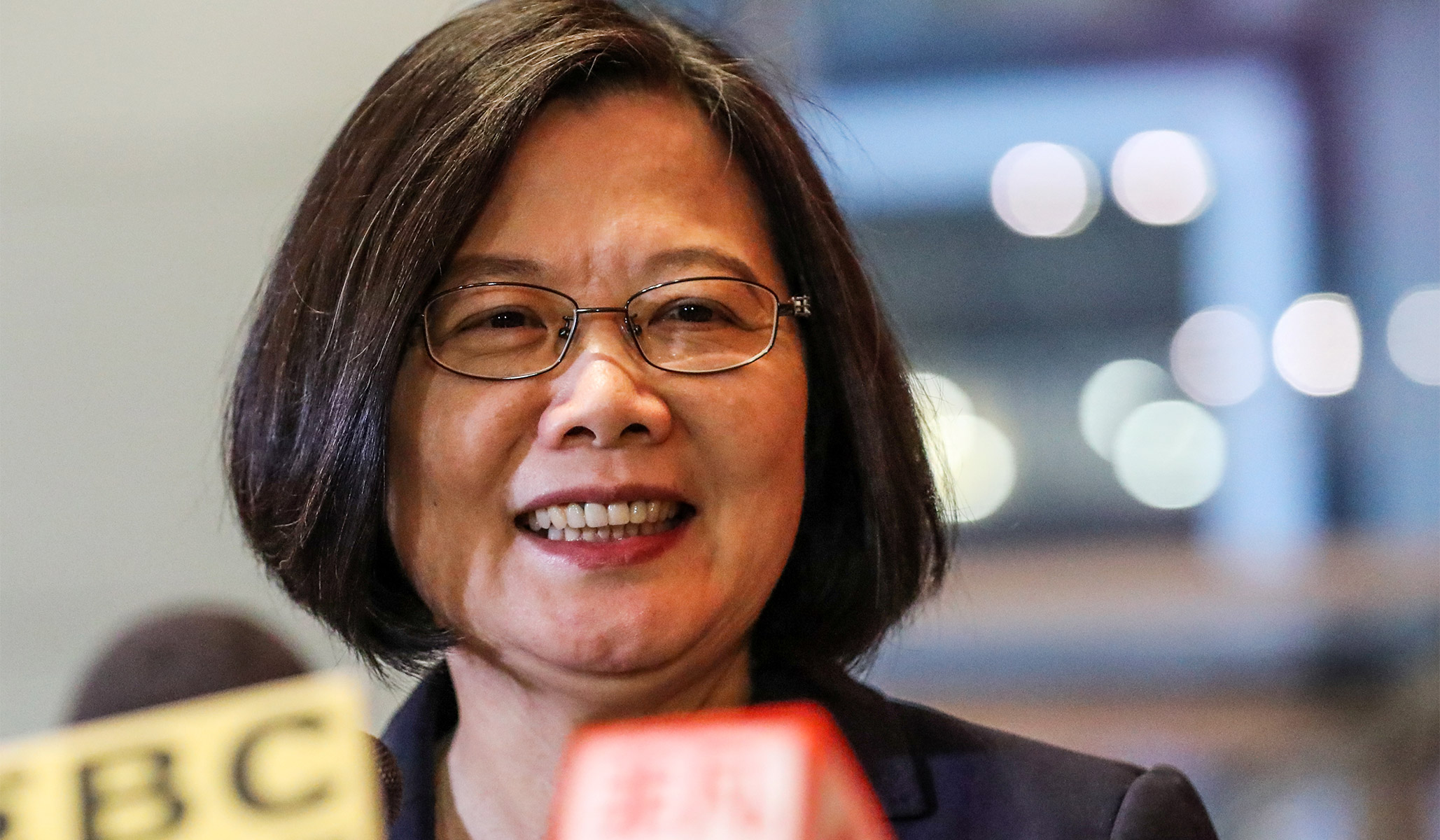JIMMY QUINN

Taiwanese president Tsai Ing-wen has written a tour de force essay making the case for why Taiwan’s ability to defend itself from Chinese aggression matters to the world, as Chinese warplanes swarm her country.
“A failure to defend Taiwan would not only be catastrophic for the Taiwanese; it would overturn a security architecture that has allowed for peace and extraordinary economic development in the region for seven decades,” wrote Tsai in a new piece for Foreign Affairs magazine.
She’s clearly right. If Beijing successfully took the island, Chinese forces would cut straight through the first island chain that blocks Beijing from projecting power into the pacific. It would weaken key U.S. allies in the region, potentially forcing them to accept some sort of settlement with China and obliterate U.S. influence over the region.
Perhaps just as important, as Tsai also emphasizes at length in the piece, the party would also kill a thriving modern, democratic society that embodies everything the party strives to delegitimize.
All Our Opinion in Your Inbox
NR Daily is delivered right to you every afternoon. No charge.
Tsai’s essay seems initially to have been written to align with the Taiwanese government’s annual push to reverse Taiwan’s exclusion from the U.N. Much of the piece deals with how the country has contributed to solving international problems, such as climate change, global public health, and more.
But the article has taken on a slightly different significance in the aftermath of a spike in Chinese military incursions into Taiwan’s air defense identification zone at the start of this month. Fighting pandemics and manufacturing critical technologies are important, and particularly relevant to the question of Taiwan’s U.N. exclusion. What’s more pertinent in light of China’s recently stepped up aggression is what Tsai bills as her country’s role “as a liberal democracy on the frontlines of a new clash of ideologies.”
That ideological dimension has a massive bearing on the strategic element of this conflict. The democratic world, for the most part, is locked into a struggle with Chinese authoritarianism, which sees fit to corrupt and stamp out anything that stands in the way of the party’s ability to perpetuate its rule. Taiwan demonstrates that there can be Chinese democracy, and for this reason, among others, Beijing seeks to conquer its neighbor.
Tsai wrote that her country is making the necessary investments in its security:
In addition to investments in traditional platforms such as combat aircraft, Taiwan has made hefty investments in asymmetric capabilities, including mobile land-based antiship cruise missiles. We will launch the All-Out Defense Mobilization Agency in 2022, a military reform intended to ensure that a well-trained and well-equipped military reserve force stands as a more reliable backup for the regular military forces. Such initiatives are meant to maximize Taiwan’s self-reliance and preparedness and to signal that we are willing to bear our share of the burden and don’t take our security partners’ support for granted.
But no one believes that Taiwan can repel a Chinese attack by itself. Tsai’s article explains why the U.S. and likeminded countries must join a potential future effort to defend the country, if they are to avert the national-security catastrophe that would result from a dominant Chinese position in the Indo-Pacific.
No comments:
Post a Comment